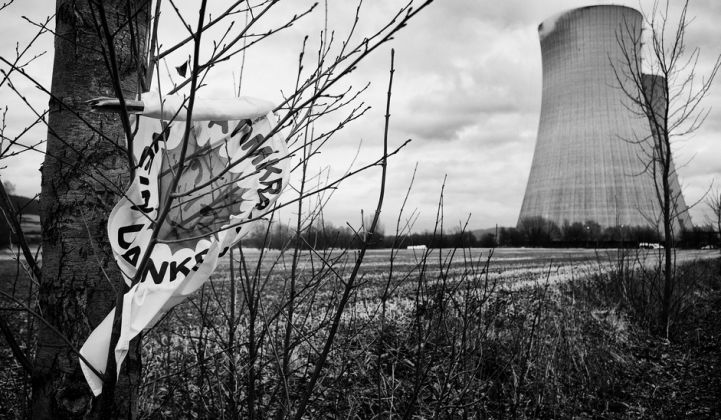A report from the Worldwatch Institute (timed in conjunction with the 25-year anniversary of Chernobyl) claims the nuclear industry was in decline even before Japan's Fukushima event.
The report, commissioned before the Fukushima crisis began, paints a picture of an aging industry struggling to keep pace with renewable energy sources like wind and solar.
"The industry was arguably on life support before Fukushima. When the history of the nuclear industry is written, Fukushima is likely to begin its final chapter," according to Mycle Schneider, lead author of the report, The World Nuclear Industry Status Report 2010-2011: Nuclear Power in a Post-Fukushima World.
Some of the report's key findings include:
- Annual renewable capacity additions have been outpacing nuclear startups for 15 years. In the U.S., the share of renewables in new capacity additions grew from 2 percent in 2004 to 55 percent in 2009, with no new nuclear capacity added.
- In 2010, for the first time, worldwide cumulative installed capacity from wind turbines, biomass, waste-to-energy, and solar power surpassed installed nuclear capacity. Total investment in renewable energy technologies was estimated at $243 billion in 2010.
- As of April 1, 2011, there were 437 nuclear reactors operating in the world, seven fewer than in 2002. In 2008, for the first time since the beginning of the nuclear age, no new unit was started up. Seven new reactors were added in 2009 and 2010, while 11 were shut down during this period.
Despite predictions in the United States and elsewhere of a nuclear "renaissance," the report concludes that the role of nuclear power was in steady decline even before the Fukushima crisis. The disaster will make the construction of new nuclear plants and extensions to the lifetime of current plants even more unrealistic, according to the report.
***
MIT released their report, The Future of the Nuclear Fuel Cycle, today. The executive summary can be downloaded here. It focused on nuclear fuel challenges and reached different conclusions than the Worldwatch report.
Some of the findings:
- The study suggests that nuclear power using today’s reactor technology with a once-through fuel cycle can play a significant part in displacing the world’s carbon-emitting fossil-fuel plants and help to reduce the potential for global climate change.
- Determining the best fuel cycle for the next generation of nuclear power plants will require more research.
- Uranium supplies will not limit the expansion of nuclear power in the U.S. or around the world for the foreseeable future.
- The report also concludes that in the U.S., significant changes are needed in the planning and implementation of spent-fuel storage and disposal options, including the creation of a new quasi-governmental body to oversee the process. Planning for how to deal with the spent fuel should be closely integrated with studies of the optimal fuel cycle, the authors suggest.
- The report strongly recommends that interim storage of spent nuclear fuel for a century or so, preferably in regional consolidated sites, is the best option.
- The report also strongly supports the present U.S. government policy of providing loan guarantees for the first several new nuclear plants to be built under newly revised licensing rules. Positive experience with “first-mover” plants -- the first of these new U.S. plants built after the current long hiatus -- could reduce or eliminate financing premiums for nuclear-plant construction.
- The potential for using nuclear power to reduce greenhouse-gas emissions is significant, the study suggests. In the U.S., nuclear power now represents 70 percent of all zero-carbon electricity production. While no new U.S. plants have been ordered in 30 years, 27 new license applications have been submitted since new regulations were instituted to streamline the process. Meanwhile, China, India, and other nations have accelerated construction of new plants.
Note that the report was funded by the Electric Power Research Institute, Idaho National Laboratory, Nuclear Energy Institute, Areva, GE-Hitachi, Westinghouse, Energy Solutions, and Nuclear Assurance Corporation -- all folks with a strong interest in a continuing role for nuclear power.
As mentioned, there's very little middle ground on the topic of nuclear. Here's an anti-nuclear message from Amory Lovins and a pro-nuclear piece by Jeff Eerkens. Michael Kanellos reports on the cost of nuclear here.



